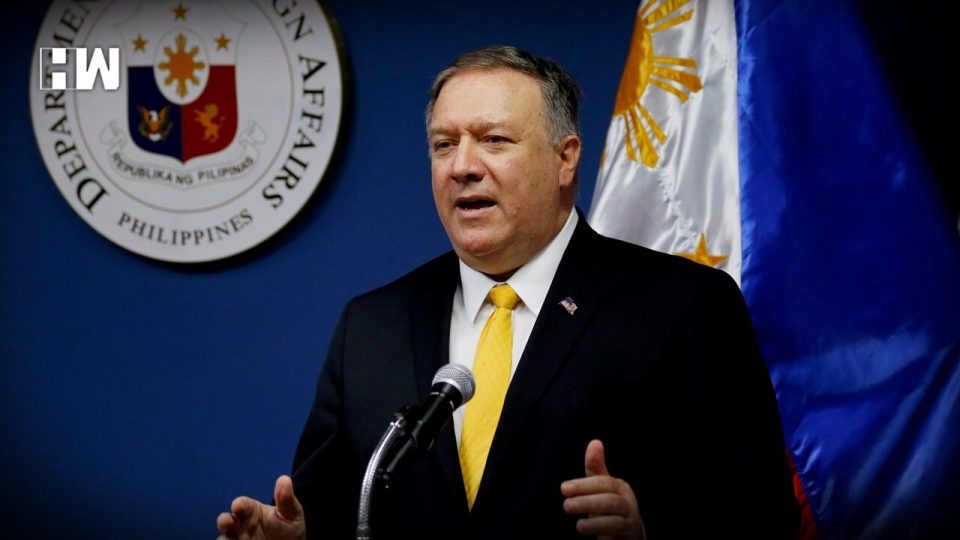Finland | The US on Monday said it planned to beef up its Arctic presence to keep Russia’s and China’s “aggressive behaviour” in check in the resource-rich region.
“The region has become an arena of global power and competition” owing to vast reserves of oil, gas, minerals and fish stocks, US Secretary of State Mike Pompeo warned in a speech in Rovaniemi, northern Finland.
“Just because the Arctic is a place of wilderness does not mean it should become a place of lawlessness,” he said.
Speaking on the eve of a meeting of the eight members of the Arctic Council, Pompeo took on Beijing and Moscow.
“China’s pattern of aggressive behaviour elsewhere will inform how it treats the Arctic,” he said.
He warned against scenarios whereby nations become ensnared by debt and corruption, of low-quality investments, militarisation and uncontrolled exploitation of natural resources, all of which he said were potential effects of allowing rising Chinese influence.
“Do we want the Arctic Ocean to transform into a new South China Sea, fraught with militarisation and competing territorial claims?” he said.
While the US and Russia are members of the Arctic Council, China holds only observer status in the cooperation body.
Noting that China’s most northern tip was 900 miles (1,450 kilometres) from the Arctic, Pompeo swatted down Beijing’s attempts to style itself as a “near Arctic state”.
“There are only Arctic States and Non-Arctic States. No third category exists, and claiming otherwise entitles China to exactly nothing,” he said.
Beijing has invested massively in the region — almost USD 90 billion between 2012 and 2017, according to Pompeo — and intends to fully benefit from the advantages of the Northern Sea Route.
The shipping channel, which drastically cuts sailing times between the Pacific and Atlantic by passing north of Russia, is increasingly usable as the ice melts.
China and Russia would like to make the Northern Sea Route a part of the New Silk Road project, a vast Chinese investment programme which several countries, especially the US, see as an attempt to gain control.
In his speech, Pompeo also denounced Russia’s “provocative actions”, accusing Moscow of wanting to remilitarise the region.
“Russia is already leaving snow prints in the form of army boots,” he said.
Under President Vladimir Putin, Moscow has beefed up its military presence in the region, reopening several bases that were abandoned after the fall of the USSR.
The virulence of Pompeo’s remarks was noteworthy given the fact he made them just minutes before a bilateral meeting with his Russian counterpart Sergei Lavrov, amid rising US-Russian tensions over Venezuela, among other things.
The two smiled and shook hands in front of the assembled media, but refused to answer questions on the nature of their talks.
To stifle rival ambitions in the Arctic, the US is “hosting military exercises, strengthening our force presence, rebuilding our icebreaker fleet, (and) expanding Coast Guard funding,” Pompeo said.
At Congress’ request, the Pentagon is to present a new defence strategy for the Arctic by June 1.
Hundreds of US Marines already rotate through Norway to carry out cold climate training, and US planes have returned to Iceland’s Keflavik airbase, which they left in 2006.
Meanwhile, Pompeo also reiterated US claims to be “the world’s leader in caring for the environment,” saying it would take the lead in the Arctic as well.
US carbon dioxide emissions are “on track to drop by nearly half by 2025, the best of any Arctic country,” he said.
Asked in the plane carrying him to Rovaniemi about the apparent contradiction between the US commitment to protect the Arctic and President Donald Trump’s pledge to leave the Paris climate accord, Pompeo said the accord, signed in 2015, had proven its “ineffectiveness”
As an independent media platform, we do not take advertisements from governments and corporate houses. It is you, our readers, who have supported us on our journey to do honest and unbiased journalism. Please contribute, so that we can continue to do the same in future.

